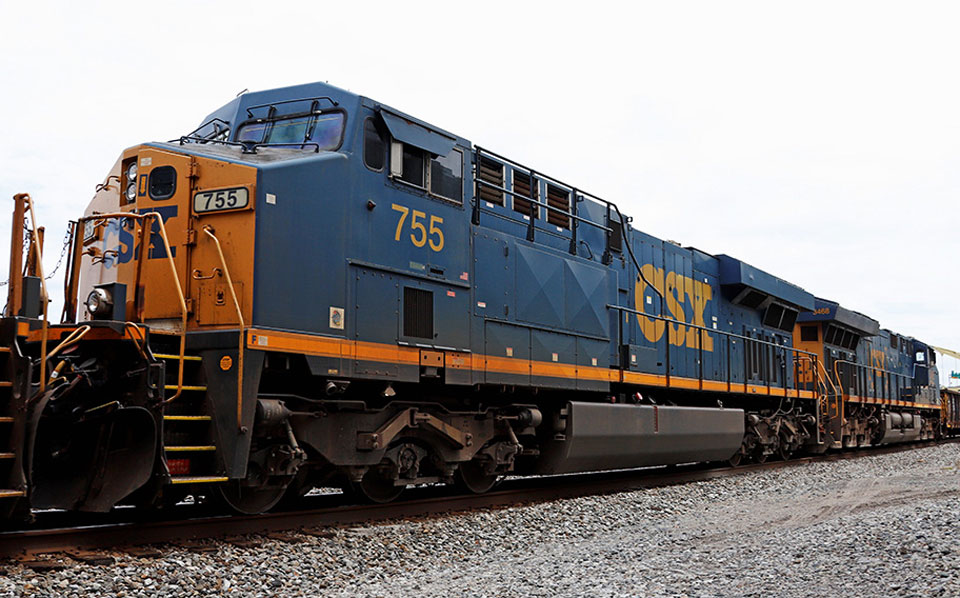
WASHINGTON (PAI)—A Presidential Emergency Board’s recommendations for settling railroad bosses’ long-running refusal to negotiate a new contract fairly with rail unions are “concessionary,” says the leading grass-roots organization of rail craft workers, Railroad Workers United.
The key reason, its long formal statement says, is complete avoidance of a top issue: Working conditions.
And a prior poll of the grass-roots group’s rail worker members produced overwhelming rejection of the PEB’s proposals, if put in a contract form: 218 “yes”-2917 “no.”
“We have our best chance to win better working conditions in this round of bargaining. We have the motivation, the justification, the allies, and public support,” the statement says. “We have the moral high ground. We should continue building solidarity and unity, our commitment to win, and pushing to the limit.
“RWU sees any contract simply based on the PEB recommendation as concessionary, especially considering the favorable conditions we have found ourselves in this round of bargaining.”
RWU’s Steering Committee approved the statement on August 30. The organization, which covers all rail crafts, has warned members for weeks to save up funds for a possible strike at the end of a cooling-off period railway labor law mandates. The statement also warns rail unions not to agree with the PEB.
“Within a few days” of the board’s proposal, “the rail unions responded by announcing their discontent yet began the arduous process of packaging a TA (tentative agreement) the members would vote for, extolling the ‘positive side’ of the board’s recommendations,” Railroad Workers United stated.
Railway labor law, however, mandates the unions submit the board’s recommendations, in contract form, for an up-or-down vote.
The statement outlines the working conditions, which the PEB’s proposal did not address. Those same conditions could force the workers to walk, thus snarling the nation’s already frayed supply chain. Railroads carry coal, oil, cars, grain and much more.
Leading those conditions are huge cuts in personnel since 2014 and chaotic work schedules. The nation’s freight railroads, notably big ones such as the Illinois Central, the Burlington Northern Santa Fe and the Union Pacific, never addressed those problems in bargaining. Neither did the presidential board, said RWU.
The result was no movement in bargaining even with federal mediation, creation of the PEB, and veteran workers already leaving in droves even before retirement, taking needed expertise with them.
Since the current contract expired, the nation’s 115,000 rail workers, most of them unionized, have had only cost-of-living hikes since before the coronavirus pandemic began. The PEB proposed wage hikes closer to the freight carriers’ figures over a 5-year contract that would begin retroactive to July 1, 2020.
Because the railroads also cut tens of thousands of workers since 2014, the remaining workers are subject to long shifts and workweeks without breaks, erratic scheduling and forced to undertake complex tasks, such as freight car inspections, they were never trained for.
“Supply chains during this period have become congested and backed up, threatening the ability to expedite the movement of raw materials and finished products, driving inflation and injuring the economic recovery. Railroads have made front page headlines for their role in bunging up these essential supply chains, with a general recognition that a lack of workers–due mainly to the industry’s actions–has been the root cause of this crisis,” RWU explains.
“Throughout this time–including the pandemic–the Class One rail carriers continued to rake in hefty profits, often breaking records in many of their quarterly reports to shareholders. They cannot plead poverty or the inability to afford our basic requests for improving the quality of our work lives,” it adds. Prior rail union statements put those profits at $146 billion since personnel cuts and other carrier financial moves began in 2014.
“The world has changed since the last strike,” RWU added. “Both conductors and engineers are federally certified, subject to drug testing and arduous hiring processes. The railroads are not in a position to hire replacement workers to break a strike. The ranks of managers have thinned to the point where using managers to do the work is not an option.”
The poll backs the RWU Steering Committee’s statement up and shows wide rank-and-file discontent with both the carriers’ stands and the board’s recommendations. Besides the overall rejection of 218-2917, on a 1-to-10 rating scale, with “1” being the worst grade, 923 workers gave the PEB a “1,” 735 gave it a “2” and 592 more chose “3.” Only 14 workers gave the recommendations a grade of 10, along with 12 more choosing “9,” and 59 choosing “8.”
The RWU resolution and poll are both on www.railroadworkersunited.org.












Comments